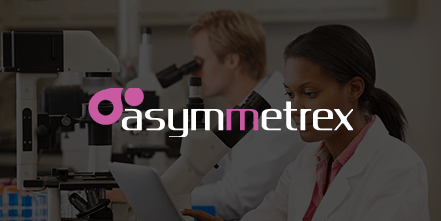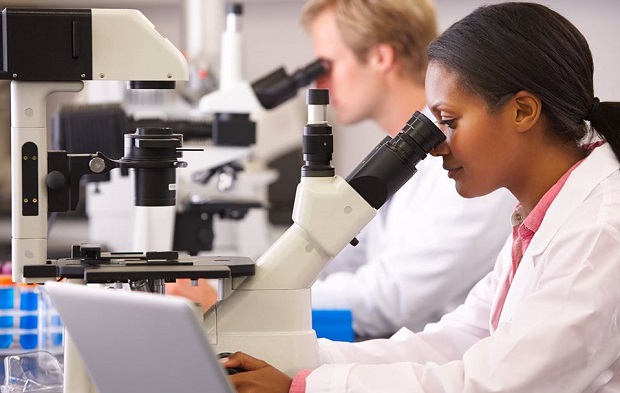Below is our recent interview with James L. Sherley, Director at Asymmetrex:

Q: Asymmetrex was recently awarded a research and development grant from the NIH-NHLBI; can you tell us something more?
A: The grant award is a well-known National Institutes of Health (NIH) grant mechanism available to small businesses to support the achievement of technical milestones or benchmarks that will increase the commercial potential of innovative products and services with high potential to impact biomedicine. It’s called a Phase I Small Business Innovation Research (SBIR) grant. There is also a Phase II grant award that companies can apply for based on the technical progress made in a Phase I award. The Phase II award has greater focus on supporting commercial development. That’s the path that Asymmetrex is now on. We also have other business-related NIH Phase I SBIR grant applications pending; and we were recently approved to submit a proposal for the National Science Foundation’s (NSF) version of Phase I SBIR seed grants.

Q: How will you use the new funds?
A: Our customer discovery work indicates that we have two main barriers to adoption of Asymmetrex’s tissue stem cell counting technology by the users we have identified in stem cell medicine and pharma. We are doing a head-to-head comparison of Asymmetrex’s AlphaSTEM Test™ technology for counting blood stem cells to the only other test that estimates blood stem cell-specific dose, which is performed in mice. We already published a comparison to mouse test data found in the peer-reviewed research literature. In that case, we showed that our test gave similar results with greater reliability. Our test is also much less expensive and much faster. So, I’m quite confident that a direct comparison will put an end to this issue.
These studies supported by the award will also lay the foundation for Asymmetrex beginning clinical evaluations of the AlphaSTEM Test™ (For instance, with a future successful Phase II SBIR application or with equity investment). We are already identifying clinical partners to develop studies to see how well our test does at predicting the outcome of transplant treatments with cord blood stem cells. As many as 15%-18% of cord blood transplants for children treated for leukemia fail because of insufficient blood stem cells. Currently there is no test able to identify cord blood units that have enough stem cells. There also are other problems in cord blood stem cell transplant medicine that our test could solve. As many as 85% of collected cord bloods are rejected for clinical use because they don’t reach a required threshold for total cell number. However, some of those rejected collections might be found to have enough stem cells if the blood stem cells were counted specifically, as we do. If only another 10%-15% of collections were found to have sufficient stem cells, that would be more than a doubling in the number of identified effective transplants.
Our second project supported by the award addresses an adoption barrier for pharmaceutical companies doing traditional drug discovery and development. Because we count tissue stem cells specifically, we can identify drug candidates that are toxic to tissue stem cells…in any human tissue. Stem cell toxic drugs cause chronic organ failure; and a drug candidate that causes chronic organ failure, like of the liver or the bone marrow, is too toxic for development and marketing. Currently, drug companies may discover drugs with this problem in animal studies, but more often they find out in patients in very costly mid to late stage clinical trials, or worse, after the drug is in the marketplace with many patients harmed. By identifying stem cell-toxic drugs early and cheaply, our test can save individual drug companies hundreds of millions of dollars by preventing continued development of drugs that will cause chronic organ failure.
The companies we have talked with so far want more data, before they will invest in using the AlphaSTEM Test™ as a new drug evaluation basis. In our recent published report, we established proof of concept with a few compounds. With the SBIR award, we will evaluate sufficient compounds to know quantitatively how well our test predicts not just tissue stem cell toxicity, but actual chronic organ failure in patients. When we can show we have a good predictive test, I expect to have more productive conversations with pharma companies.
 Recommended: Meet Willo – A Simple Asynchronous Video Communication Platform For Interviewing At Scale
Recommended: Meet Willo – A Simple Asynchronous Video Communication Platform For Interviewing At Scale
Q: Asymmetrex recently published a peer-reviewed report describing its development of a method for quantifying therapeutic tissue stem cells; can you comment for our readers?
A: Yeah, we are pretty excited about this report. Of course, much of what is reported we have known for several years. Much of the report’s content has played a major role in Asymmetrex’s commercialization strategy for our AlphaSTEM Test™ service. Now with the research publication, we make our advance available for critical evaluation by the academic research, biomedical, and pharmaceutical communities.
The report also includes our latest advance in tissue stem cell counting. This is the discovery of tissue stem cell counting algorithms. These simple mathematical formulas were discovered with our AlphaSTEM Test™ technology. They allow the number and dose of tissue stem cells to be determined from a simple, rapid, inexpensive cell culture procedure that is already widely used in cell research. We are looking for a development partner to put these algorithms into an existing electronic cell counter to make the first tissue stem cell counters for use in many diverse applications in stem cell science, medicine, and the pharma industry.
Q: What are your plans for next three months?
A: Being ahead of schedule with progress on our new SBIR projects!

